Faculty
I have a very strong admiration for each and every faculty member for not only what they bring intellectually but their chesed, their soul their spirit, the way they share when they make a mistake, the way they’re willing to be vulnerable and open with us.
– Rabbi Rebecca Weintraub, Rabbinical Alumna
Faculty
Marion Gribetz Director, Congregational Education Initiative Director of Educational Initiatives, Graduate Jewish Education Program
Rabbi Allan Lehmann Faculty
Rabbi Jessica Kate Meyer`14 Rosh Tefillah and Artist-in-Residence
Rev. Rob Schenck Visiting Faculty
Miller Center for Interrelgious Learning & Leadership
Rabbi Michael Shire, PhD Academic Director, Master’s in Jewish Education
Dr. Devora Steinmetz Faculty
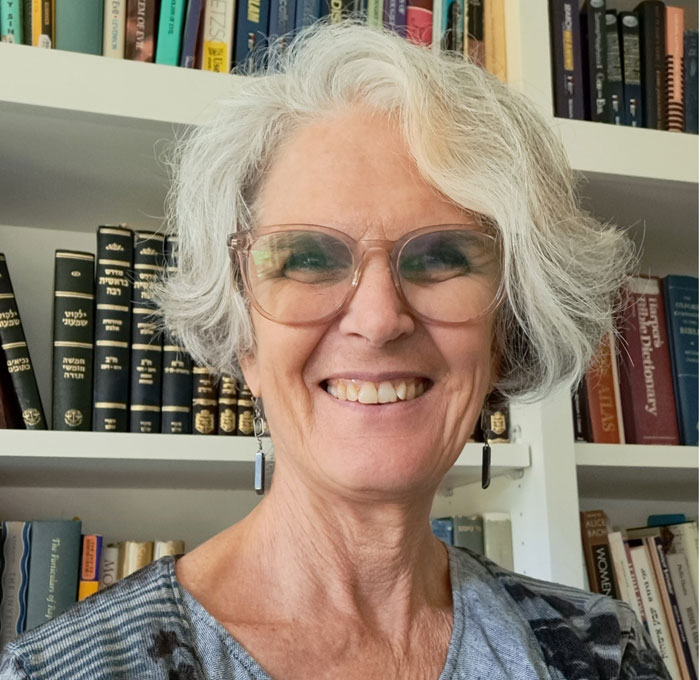
Rav Rachel Adelman, PhD
Associate Professor, Hebrew Bible
radelman@hebrewcollege.edu | 617.559.8646
Education
Rabbinic Ordination, Hebrew College
Ph.D., Hebrew University of Jerusalem
M.A. in Jewish Studies from Matan/Baltimore Hebrew University
Biography
Rav Rachel Adelman, who joined the full-time faculty in 2012, provides a dynamic, open approach to text study, drawing on a wide range of sources, from Tanakh and classical midrash to modern Israeli poetry. She holds a M.A. in Jewish Studies from Matan/Baltimore Hebrew University and a Ph.D. in Hebrew literature, with a specialty in midrash, from The Hebrew University of Jerusalem, and rabbinical ordination from Hebrew College.
Her first book, The Return of the Repressed: Pirqe de-Rabbi Eliezer and the Pseudepigrapha, is based on her doctoral dissertation, and she began her second, The Female Ruse: Women’s Deception and Divine Sanction in the Hebrew Bible, under the auspices of the Women’s Studies in Religion Program (WSRP) at Harvard. She is currently working on a new book, Daughters in Danger from the Hebrew Bible to Modern Midrash (forthcoming, Sheffield Phoenix Press). When she is not writing books, papers, or divrei Torah, it is poetry that flows from her pen.
Selected Publications and Presentations
- Sukkot as a Touch of Eternity
- Jonah’s Magical Mystery Tour of the Netherworld
- “The Elusive Ark: Locus of Longing in Exile,” Journal of Jewish Thought and Philosophy 27 (2019), 137-167.
- “Love as Strong as Death: Eros and Thanatos in the Sinai Theophany”, in Zeramim: An Online Journal of Applied Jewish Thought 3:1 (Fall 2018), 5-26; https://zeramim.org/
- The Willingness to Let Go of What We Seek (video) from the Hebrew College Elul Together Project (2020/5781)
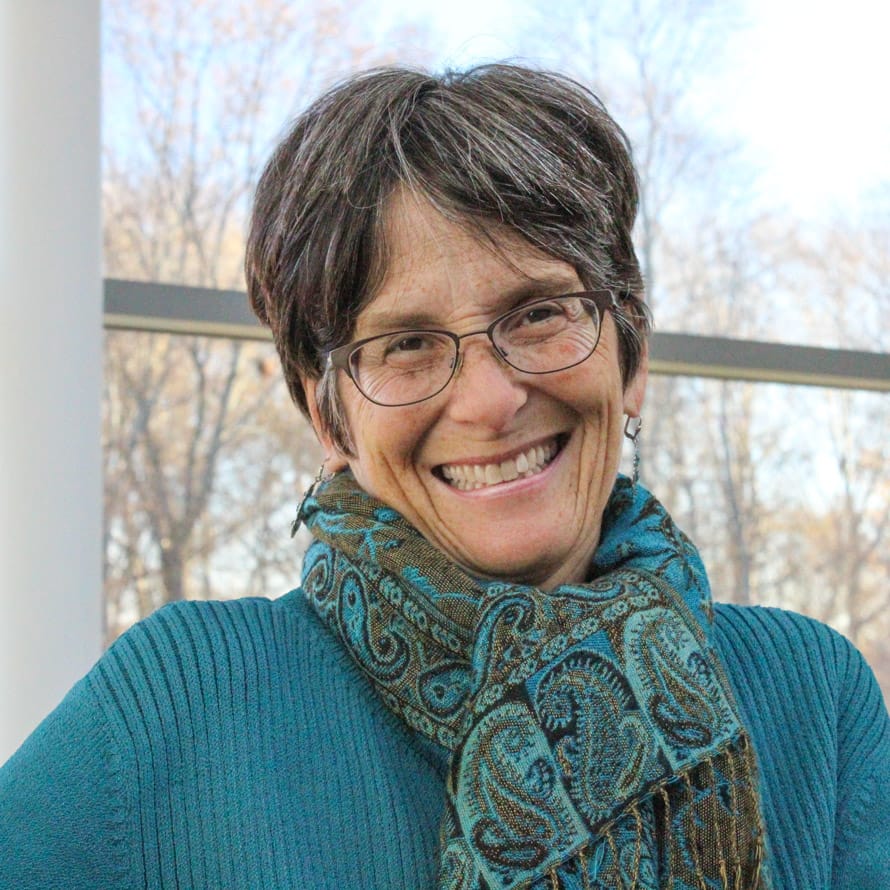
Rabbi Sharon Cohen Anisfeld
President
sanisfeld@hebrewcollege.edu | 617.559.8773
Education
Rabbinic Ordination, Reconstructionist Rabbinical College
B.A., Brown University
Biography
Rabbi Sharon Cohen Anisfeld has been president of Hebrew College since 2018. She came to Hebrew College in 2005 and served first as Dean of Students for one year and then as Dean of the Rabbinical School for 11 years, from 2006-2017. Rabbi Anisfeld graduated from the Reconstructionist Rabbinical College in 1990 and subsequently spent 15 years working in pluralistic settings as a Hillel rabbi at Tufts University, Yale University, and Harvard University. She has been a regular summer faculty member for the Bronfman Youth Fellowships in Israel since 1993 and is co-editor of two volumes of women’s writings on Passover, The Women’s Seder Sourcebook: Rituals and Readings for Use at the Passover Seder and The Women’s Passover Companion: Women’s Reflections on the Festival of Freedom.
From 2011-2013, Rabbi Anisfeld was named to Newsweek‘s list of Top 50 Influential Rabbis in America, and in 2015, was named one of the 50 most influential Jews in the world by The Jerusalem Post. She writes and teaches widely, weaving together Torah, rabbinic commentary, and contemporary poetry and literature in her wise and compassionate approach to the complexities of the human experience and the search for healing and hope in a beautiful but fractured world.
Selected Publications and Presentations
- Caught in the Thicket (video) from the Hebrew College Elul Together Project (2020/5781)
- “Extending the Horizons of Our Hearts” (Hebrew College Speaking Torah podcast)
- “Standing Before the Gates: Be’ila 5781“
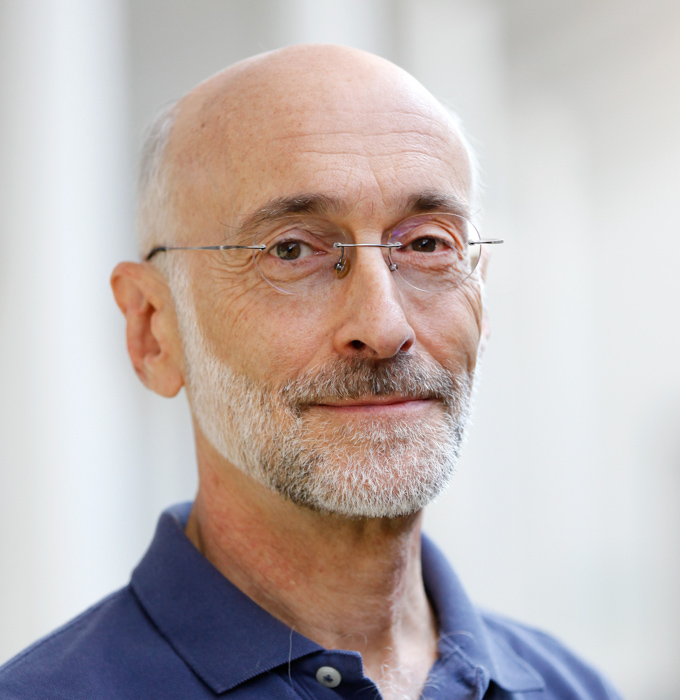
Harvey Bock
Hebrew Language Coordinator, Rabbinical School hbock@hebrewcollege.edu | 617.559.8761
Education
J.D., Yale Law School
B.A., Linguistics, Yale College
Biography
Harvey Bock is a graduate of the Yeshivah of Flatbush; Yale College, where he majored in linguistics; and Yale Law School. After more than 20 years of practicing law, with a specialty in banking regulation (most recently as general counsel of Discover Card), Bock embarked in 2001 upon a second career at Hebrew College as a teacher of Hebrew language and Aramaic, areas of study in which he has long maintained an intense interest. He has translated several books, articles, and poems from Hebrew into English, including Introduction to the Literature of the Hebrew Bible by Alexander Rofé.
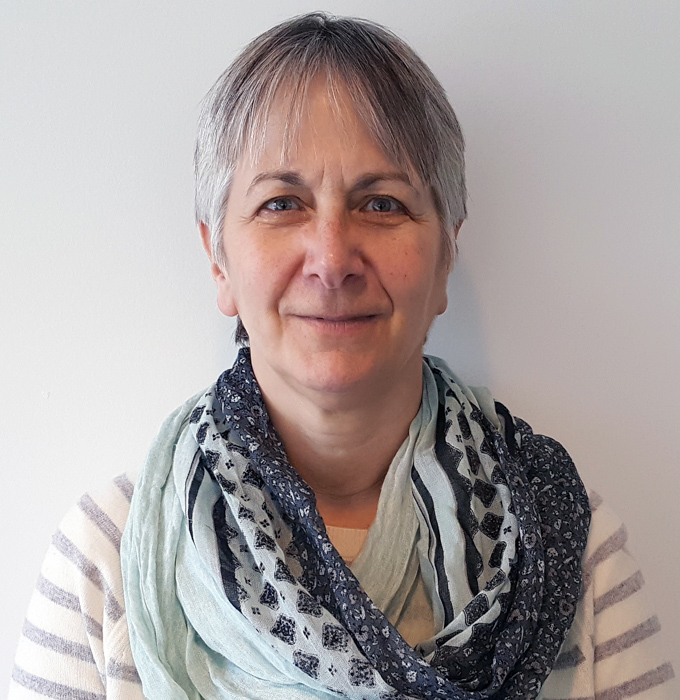
Marion Gribetz
Director, Congregational Education Initiative
Hebrew College Graduate Education Program
mgribetz@hebrewcollege.edu | 617.559.8655
Education
Doctoral Studies, The Hebrew University of Jerusalem
M.A., Tufts University
B.A., Barnard College, Columbia University
Biography
Marion Gribetz is on the faculty of MaTaRoT and is the director of educational initiatives. She teaches in, oversees, and directs aspects of many professional learning programs at the college including the Pardes Educator Program and community initiatives in teacher learning. As a faculty member at Hebrew College, she has taught a variety of courses in Jewish education, including Strategic Planning for Jewish Education, Arts and Jewish Studies in the Jewish School, Foundations of Congregational Education, Seminar in Jewish Pluralism, Theory and Practice of Experiential Education, Issues in the Teaching of Israel and the Graduate Research Seminar.
Selected Publications and Presentations
- Two chapters in: Learning and Community: Jewish Supplementary Schools in the Twenty-first Century (Edited by Jack Wertheimer, Brandeis University Press, 2009)
- Lessons from Mapping Jewish Education, 2007, Brandeis University
- Mapping Professional Development, 2008, Brandeis University
- Likud by the Lake Revisited: Growth and Change at Jewish Summer Camp, 2011, AVI CHAI foundation
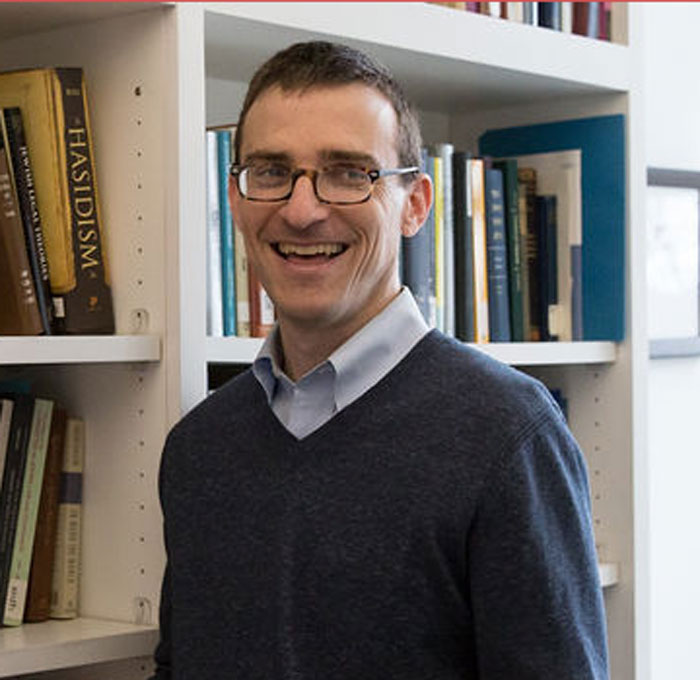
Rabbi Dan Judson, PhD
Provost
djudson@hebrewcollege.edu | 617.559.8638
Education
Doctorate in Jewish History, Brandeis University, Department of Near Eastern and Judaic Studies
Rabbinic Ordination, Hebrew Union College-Jewish Institute of Religion
Master in Hebrew Letters, Hebrew Union College-Jewish Institute of Religion
B.A., Colgate University
Biography
Rabbi Dan Judson, Ph.D. serves as the Provost of Hebrew College in Newton, MA where is also a lecturer in Jewish history. Rabbi Judson received his doctorate in Jewish history at Brandeis University and his book, Pennies for Heaven: The History of American Synagogues and Money (University of Chicago Press, 2018) was a finalist for the National Jewish Book Award. He is presently working on a book about American Zionist history, When America Became Zionist: The Lodge-Fish Resolution of 1922 and the Surprising Group of Politicians who Changed American Policy Towards Israel. His research and writing on new models of synagogue finance have appeared in The New York Times, The Boston Globe, Haaretz, Reform Judaism magazine and many other Jewish publications. He is also a storyteller who has appeared on the MOTH national radio hour: https://themoth.org/storytellers/daniel-judson.
Selected Publications and Presentations
- Pennies for Heaven: The History of American Synagogues and Money, Brandeis University Press (2018)
- Are Voluntary Dues Right For Your Synagogue? A Practical Guide, UJA Federation of New York (2015)
- “When Jews Choose Their Dues,” Reform Judaism Magazine (Spring, 2014) An interview and essay appeared as the cover story for the world’s largest circulated Jewish magazine.
- “What One Chabad Rabbi Can Teach Synagogues About Money,” Ejewishphilanthropy.com (January 24, 2013) Named by web site as one of the ten best articles of the year.
- “Scrapping Synagogue Dues: A Case Study,” Ejewishphilanthropy.com (January 12, 1012). Named by web site as one of the ten best articles of the year.
- Jewish Holidays: A Brief Introduction for Christians. Co-author with Dr. Kerry Oltizky.Woodstock, VT: Jewish Lights Publishing, 2006. Part of a series of books about Jewish practice intended for a Christian audience.
- Jewish Rituals: A Brief Introduction for Christians. Co-author with Dr. Kerry Olitzky. Woodstock, VT: Jewish Lights Publishing, 2004. Part of a series of books about Jewish practice intended for a Christian audience.
- Meeting at the Well: A Jewish Spiritual Guide to Being Engaged. Co-author with Rabbi Nancy Wiener. New York: UAHC Press, 2002. The book provides Jewish wisdom on a variety of topics for engaged couples. These topics include: intimacy, money, religion, spirituality, dealing with in-laws, etc.
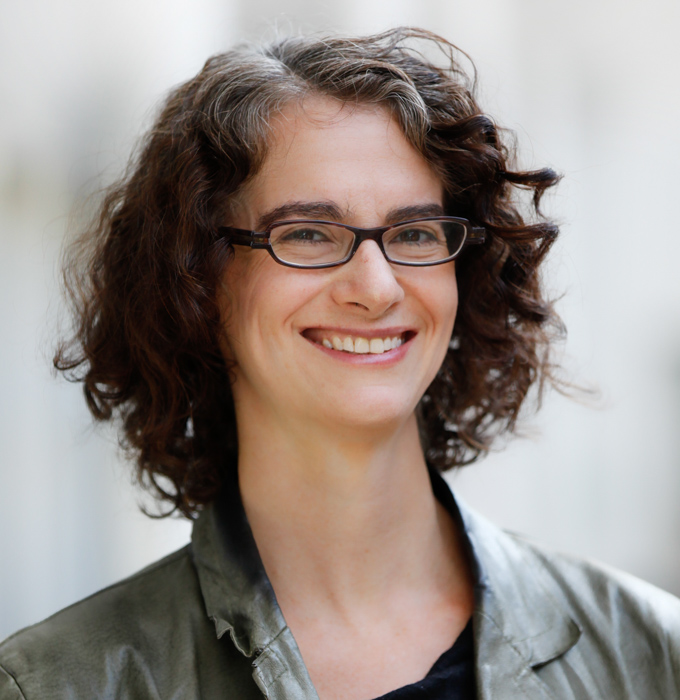
Rabbi Jane Kanarek, PhD
Dean of Faculty;
Professor of Rabbinics
jkanarek@hebrewcollege.edu | 617.559.8623
Education
Rabbinic Ordination, Jewish Theological Seminary
Ph.D., University of Chicago
Biography
Rabbi Dr. Jane Kanarek is associate professor of rabbinics and associate dean of the Hebrew College Rabbinical School. She is the author of Biblical Narrative and the Formation of Rabbinic Law and the co-editor of Learning to Read Talmud: What It Looks Like and How it Happens and Mothers in the Jewish Cultural Imagination, the latter two of which were finalists for the National Jewish Book Awards.
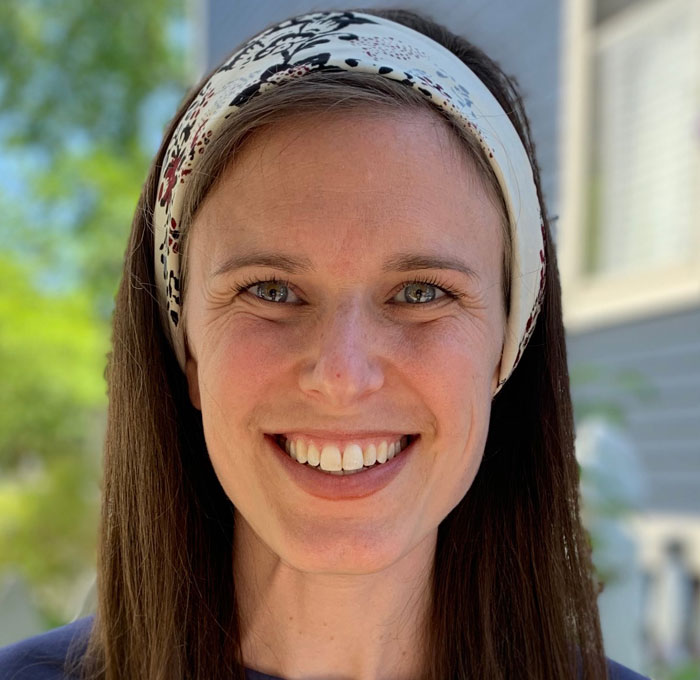
Rabbi Gita Karasov
Dean of Students & Admissions
gkarasov@hebrewcollege.edu
Education
- Rabbinic Ordination, Hebrew College (Class of 2020)
- MJEd, Hebrew College (Class of 2020)
- B.A., University of Maryland
Biography
Originally from Minnesota, Rabbi Gita Karasov spent her time prior to rabbinical school serving as director of engagement and education at the University of Michigan Hillel. Her passion has always been at the intersection of relationship building and Jewish education, and she is thrilled to be working in this capacity, accompanying prospective and current students along their own spiritual and intellectual journeys.
Selected Publications and Presentations
- “The Teshuvah of Missed Connections” (video) from the Hebrew College Elul Together Project (5781)

Rabbi Daniel Klein
Dean of the Rabbinical School
dklein@hebrewcollege.edu | 617.559.8637
Specialization
Admissions and student life
Education
- Rabbinic Ordination, Hebrew College (Class of 2010)
- MJEd., Hebrew College (Class of 2010)
- B.A., The University of Chicago
Biography
Rabbi Daniel Klein grew up in Newton, MA and has been a member of the Hebrew College community for over 20 years. As a teenager, he attended Prozdor; Hebrew College’s Hebrew High School; and Camp Yavneh, an affiliate of Hebrew College. Rabbi Klein earned his B.A. from The University of Chicago. Raised to love Judaism and to have a commitment to service, Daniel found his own path into Jewish tradition beginning in college in the writings of Rabbi Abraham Joshua Heschel, Rabbi Arthur Green, and the Hasidic masters. After teaching middle school and high school social studies at a Jewish Day School in New Jersey, Klein entered the Rabbinical School of Hebrew College and was ordained in 2010. In addition to being the Dean of Students, Klein serves as the rabbi in residence of The Boston Synagogue. He now lives again in Newton with his wife Jen and their two children, Micah and Nora.
Selected Publications and Presentations
- The Human Soul is a Candle of God: Finding Meaning in Existence. Huffington Post Religion (May, 2016)
- Singing in the Dark: Leviticus and the Call for Justice. Hebrew College blog (April, 2016)
- On Joseph, Shaving, and Being Human. Huffington Post Religion (December, 2015)
- Seeing Past, Present and Future on the Road to Justice. Huffington Post Religion (August, 2015)
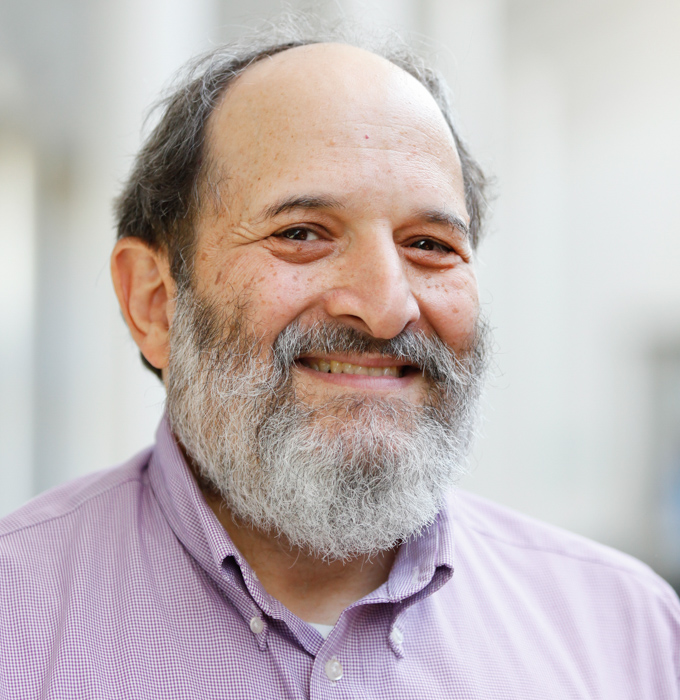
Rabbi Allan Lehmann
Faculty
alehmann@hebrewcollege.edu | 617.559.8628
Education
Rabbinic Ordination, Reconstructionist Rabbinical College
Biography
Whether in his office, the Mascott Beit Mmidrash, or the classroom, Rabbi Allan Lehmann counsels, teaches and advises rabbinical students in his role as associate dean of the Rabbinical School. Before joining Hebrew College in 2007, Lehmann served for seven years as Jewish chaplain and rabbinic Hillel director at Brandeis University. Prior to that, he served for 20 years as the rabbi of a Conservative synagogue in Gainesville, Fla. Lehmann and his wife, Joanne Schindler, often host Minyan Olat Shabbat at their house in Newton Centre on Friday evenings.
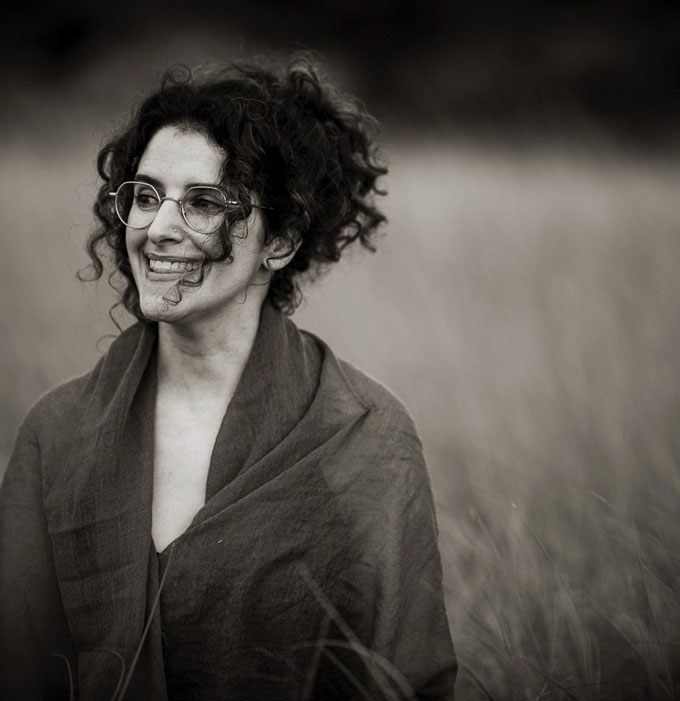
Rabbi Jessica Kate Meyer`14
Rosh Tefillah and Artist-in-Residence
Education
Rabbinical Ordination, Hebrew College
Biography
Jessica Kate Meyer is a prayer leader, storyteller, vocalist, and rabbi, who served as rabbi-hazzan at Romemu in NYC, and most recently, at The Kitchen in San Francisco. She has studied sacred Jewish music with masters from Ashkenazi and Mizrahi traditions and has performed as a vocalist with ensembles in the United States and Israel. In a previous life, Jessica appeared in film, theater, and television projects in Europe and the United States: most notably, as a principal role in the Oscar-winning film, The Pianist.
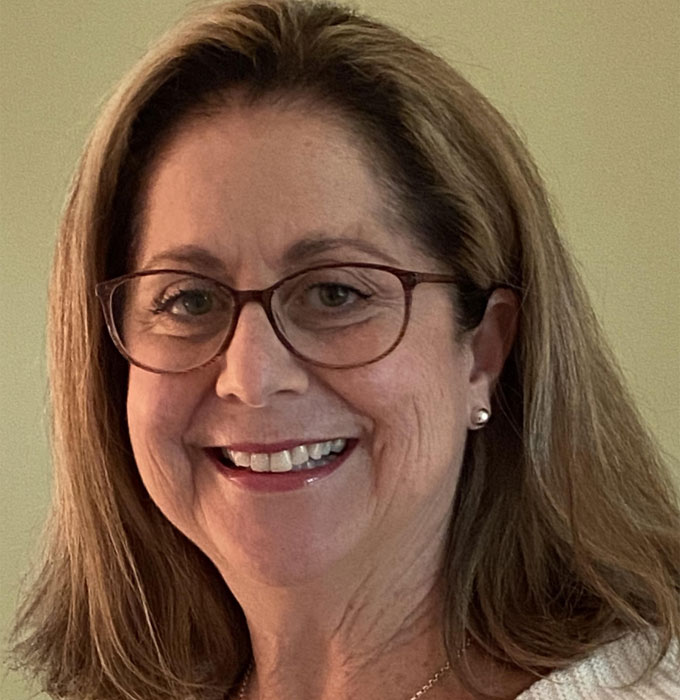
Susan Morrel
Senior Advisor and Director of Field Experiences in the Master of Jewish Education Program at Hebrew College
smorrel@hebrewcollege.edu
Education
Executive Master Degree in Religious Education, Hebrew Union College-Jewish Institute of Religion (HUC-JIR)
Biography
Susan Friedburg Morrel is a Jewish educational leader with over 25 years of congregational education experience, as well as experience working in Jewish camps and organizations.
In addition to her work at Hebrew College, Susan is a consultant for Gateways: Access to Jewish Education where she coaches educators in providing special education support to enable students with diverse learning needs to succeed in Jewish learning and living. Morrel is also a teacher-educator in Philosophical Inquiry in Jewish Education (PIJE) and Instructional Leadership who specializes in Social and Emotional Learning (SEL) and consults nationally.
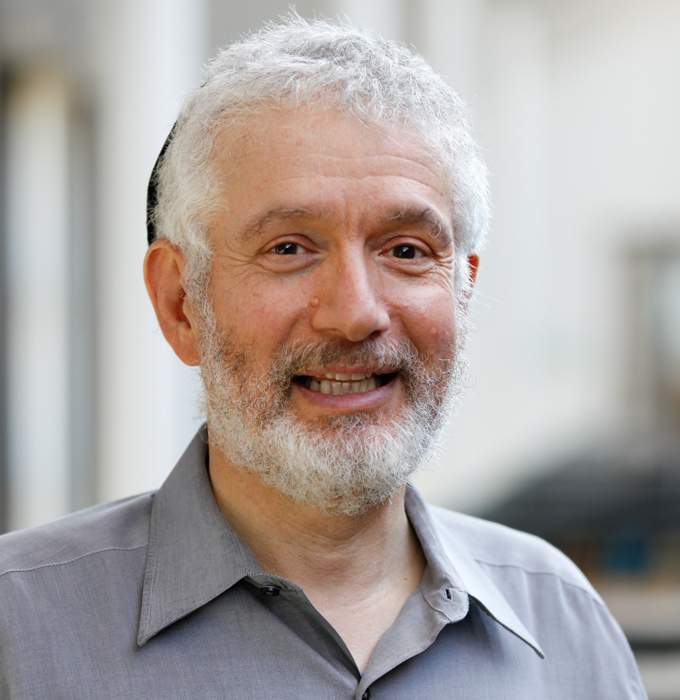
Rabbi Nehemia Polen, PhD
Professor of Jewish Thought
npolen@hebrewcollege.edu | 617.559.8616
Education
Rabbinic Ordination, Ner Israel Rabbinical College
Ph.D., Boston University
Biography
Nehemia Polen is a leading expert in Hasidism and Jewish thought. A widely published author, his books include The Holy Fire: The Teachings of Rabbi Kalonymus Kalman Shapira, the Rebbe of the Warsaw Ghetto; a translation of Malkah Shapiro’s The Rebbe’s Daughter: Memoir of a Hasidic Childhood, a project that originated in Polen’s research as a National Endowment for the Humanities fellow and recipient of a National Jewish Book Award; Filling Words With Light: Hasidic and Mystical Reflections on Jewish Prayer; and From Tiberias, With Love: A Collection of Tiberian Hasidism, Volume I: Rabbi Menachem Mendel of Vitebsk. His most recent book, Stop, Look, Listen: Celebrating Shabbos Through a Spiritual Lens (Maggid 2022), was named a finalist for the 72nd Jewish Book Council’s Myra H. Kraft memorial Award for Contemporary Jewish Life & Practice. In 2024, he received Hadar’s Ateret Tzvi essay award second prize.
Polen holds a doctorate from Boston University, where he studied with and served as a teaching fellow for Nobel Laureate Elie Wiesel. Prior to his career in Jewish academia, Polen served for 23 years as a congregational rabbi.
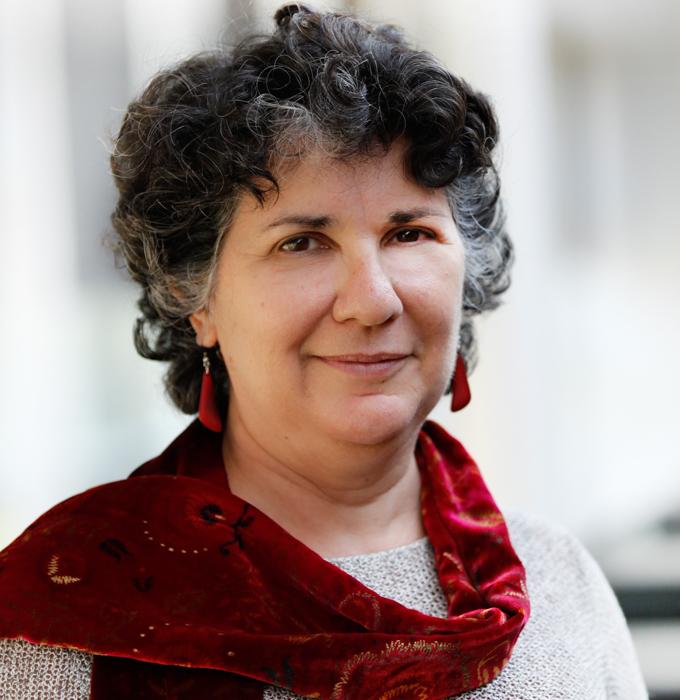
Rabbi Shayna Rhodes
Co-director, Mascott Beit Midrash
srhodes@hebrewcollege.edu | 617.559.8765
Education
Rabbinic Ordination, Hebrew College (Class of 2008)
Biography
Shayna Rhodes joined the Rabbinical School as a beit midrash instructor after earning her rabbinic ordination at Hebrew College. She now divides her time between the classroom and the Mascott Beit Midrash, teaching Talmud, Tanakh (canon of the Hebrew Bible) and halakhah (Jewish law) and facilitating tefilla (prayer). Rhodes combines tradition with feminism, empowering students to discover their own voice in sacred text.
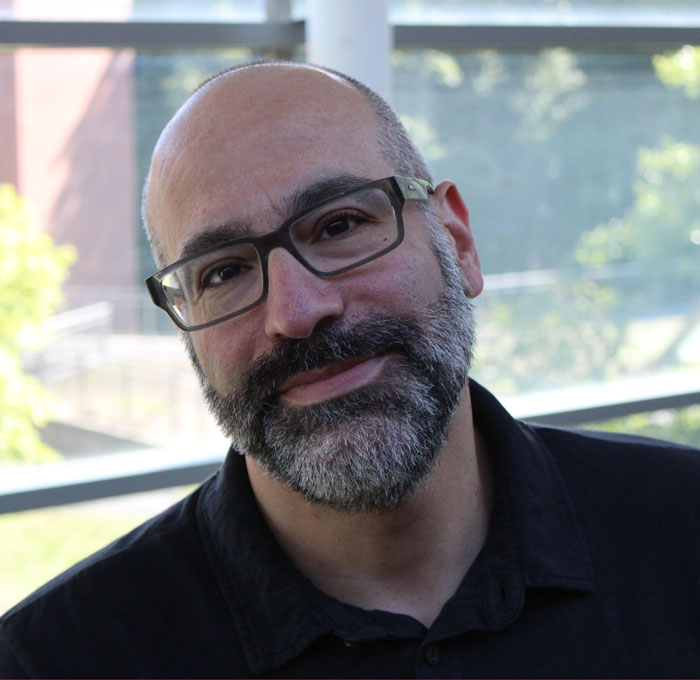
Rabbi Or Rose
Director, Miller Center for Interreligious Learning & Leadership
orose@hebrewcollege.edu | 617.559.8636
Education
Rabbinic Ordination, Private
Biography
Rabbi Or Rose is the founding director of the Betty Ann Greenbaum Miller Center for Interreligious Learning & Leadership of Hebrew College. Before assuming this position in 2016, he worked in various administrative and teaching capacities at Hebrew College for over a decade, including serving as a founding faculty member and associate dean for Informal Education of the Rabbinical School. Rabbi Rose was also one of the creators of CIRCLE, The Center for Interreligious & Community Leadership Education, cosponsored by Hebrew College and Andover Newton Theological School (2007-2017) and has taught for Hebrew College’s Me’ah Classic program.
In addition to his work at Hebrew College, Rose has taught for the Bronfman Youth Fellowships, The Wexner Graduate Fellowship, and in a variety of other academic, religious, and civic contexts throughout North America, and in Asia, Europe, and Israel.
A prolific author and editor, his writings have appeared in Beliefnet; the Forward; The Huffington Post; Interfaith America; the Jewish Telegraphic Agency; Patheos; MyJewishLearning; Religion News Service; The Times of Israel; Tikkun; Sh’ma; The Washington Post; as well as various scholarly publications. Rose is the senior Publisher of The Journal of Interreligious Studies, as well as co-editor of Speaking Torah: Spiritual Teachings from Around the Maggid’s Table, and the award-winning anthology, My Neighbor’s Faith: Stories of Interreligious Encounter, Growth, and Transformation. His most recent publications include With the Best of Intentions: Interreligious Missteps & Unexpected Learnings (Orbis 2023) and the co-edited volume, Rabbi Zalman Schachter: Essential Teachings. Rose is currently working on a contemporary multifaith commentary on the Psalms, tentatively entitled The Book of Psalms: Here & Now (Paraclete Press, 2023.)
Selected Publications and Presentations
- “PsalmSeason: A Soundtrack for a Time of Upheaval” (with Rev. Paul Raushenbush)
- “Psalm: 114—On Liberation & Connecting to the Earth” (with Ruth Messinger)
- “Elijah the Prophet & Intergenerational Connection”
- “Building Bridges of Compassion: Preparing for Passover & Easter Virtually”
- “Life in the World House: Cultivating Leaders for a Pluralistic Age”
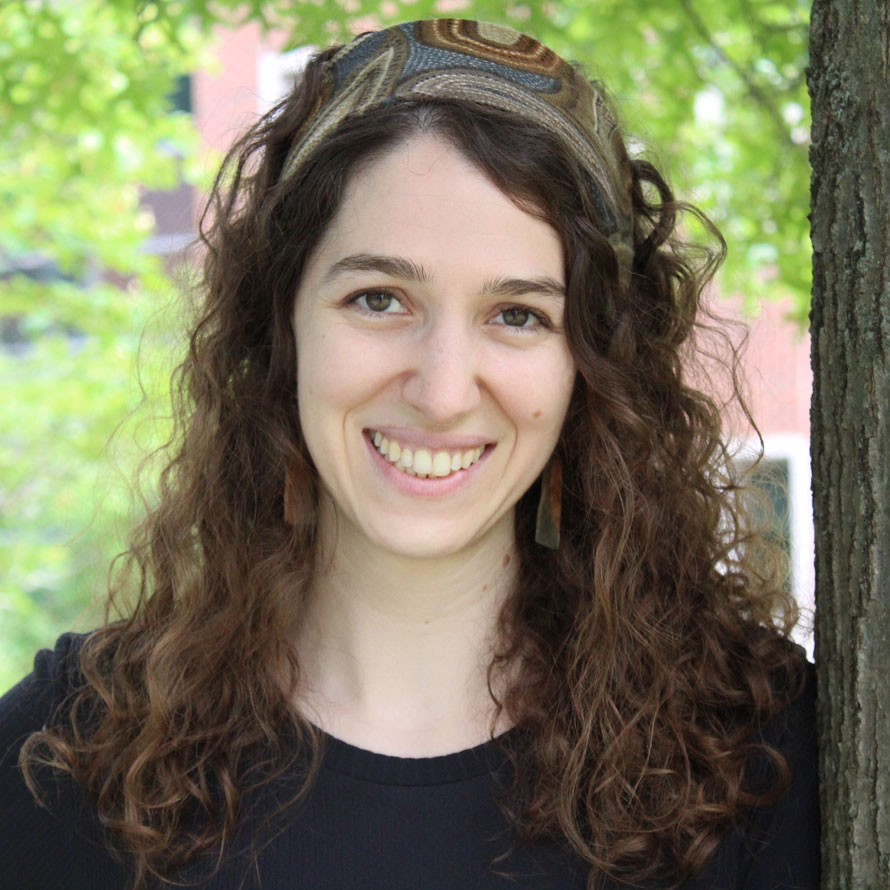
Rabbi Shoshana Rosenbaum
Co-director, Mascott Beit Midrash
Education
Rabbinic Ordination, Hebrew College (Class of 2021)
B.A. in Near Eastern and Judaic Studies, Brandeis University
Biography
Rabbi Shani Rosenbaum joined the Hebrew College faculty in 2021. Her teaching focuses on rabbinic and halakhic literature.
Shani holds a B.A. in Near Eastern and Judaic Studies from Brandeis University and rabbinic ordination from her teachers at Hebrew College. She has also pursued immersive Torah study in a range of yeshiva settings, including Midreshet Lindenbaum, Matan, Beit Midrash Har’el, Yeshivat Hadar, Yashrut, and the Pardes Kollel.
Rosenbaum spent her early career working on the programming teams of several organizations pursuing justice through a Jewish lens, including Encounter and OLAM, where she produced the Global Torah podcast. In 2020, she conducted a “Jewish Law and Ethics Hackathon for the Age of COVID-19” for T’ruah: The Rabbinic Call for Human Rights.
In addition to her courses in the Rabbinical School, Rosenbaum teaches Talmud, Halakha, and Midrash through Hebrew College Open Circle Jewish Learning, and has represented the Hebrew College faculty at Hadar and Hebrew College’s annual Halakha Intensive in New York. She served as managing editor for Hiddushim: Celebrating Hebrew College’s Centennial, a volume of essays on Jewish studies and education, which was published by Academic Studies Press in 2022.
Rosenbaum lives in Somerville, MA, with her spouse, Aaron, and the occasional borrowed cat or dog.
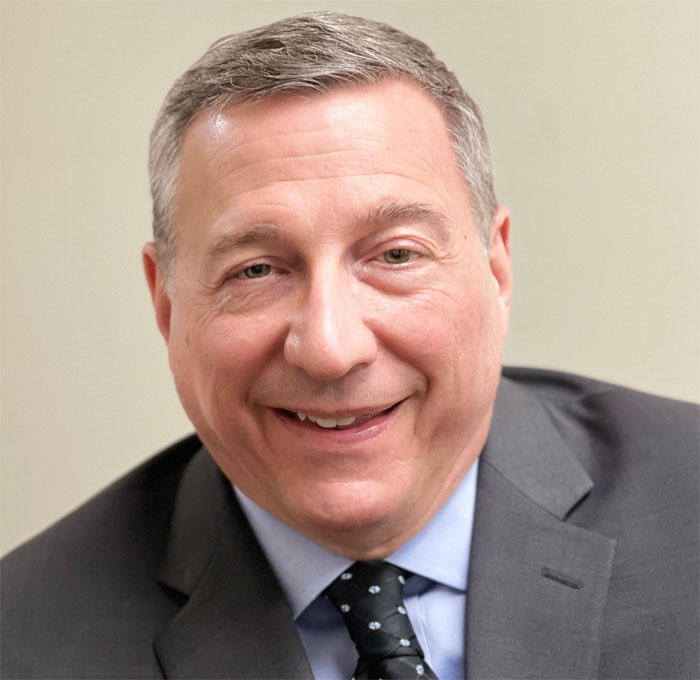
Rev. Rob Schenck
Rev. Rob Schenck, D.Min. is an ordained evangelical minister and a progressive voice of dissent in his religious community.
Over a 40-year career, he has served as an addictions counselor, youth director, pastor, global humanitarian outreach worker, and a minister to top elected and appointed officials in Washington, DC. In the aftermath of 9/11, Schenck helped lead an unprecedented international dialogue between North American evangelical leaders and North African Islamic scholars. Shortly afterward, he was the subject of Abigail Disney’s Emmy Award-winning documentary, The Armor of Light, a critique of the American evangelical embrace of popular gun culture, eventually leading to his break from evangelical orthodoxy on guns, abortion, and the public display of religious symbols.
Schenck holds degrees in Bible and Theology, Religion, and Christian Ministry and a Doctor of Ministry in strategic leadership with a concentration in church and state. He has been a visiting academic at Oxford University where recently co-convened a historic colloquium on racialized Christian Nationalism. Schenck tells the story of his religious journey in a memoir, Costly Grace: An Evangelical Minister’s Rediscovery of Faith, Hope and Love (HarperCollins). His essays on the intersection of religion and public life have been published by Religion News Service, USA Today, TIME Magazine, the Chicago Tribune, Washington Post, and The New York Times, among other national journals.
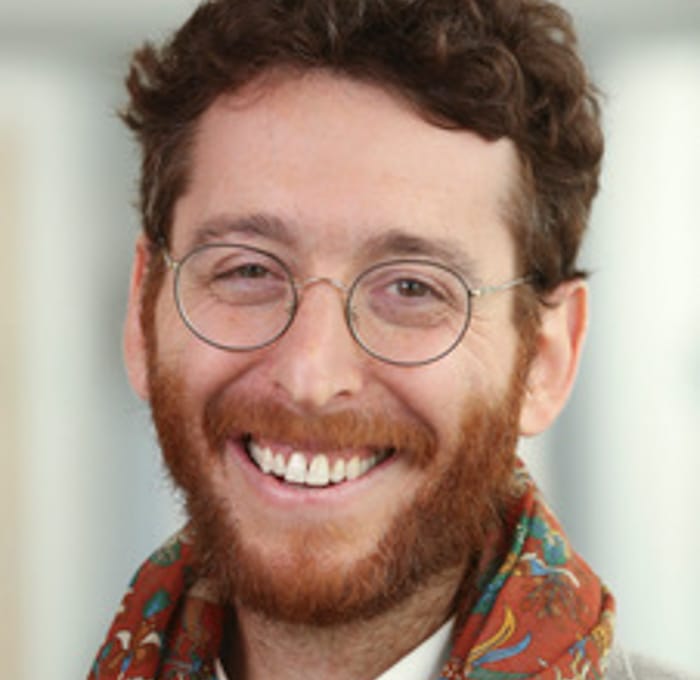
Rabbi Jordan Schuster
Education
Rabbinic Ordination, Hebrew College (Class of 2018)
Biography
Before matriculating in the Rabbinical School of Hebrew College in 2014, Jordan taught Yiddish at Columbia University, managed a yoga studio in San Francisco, and tended the gardens and greenhouse of a small grocery store in southeastern Wisconsin.
After his ordination in 2018, Jordan worked for Hebrew College’s Adult Education Department, then joined the Rabbinical School as a full-time faculty member and advisor a year later.
Currently, Jordan teaches courses in Tanakh, Mishna, and Classical Jewish Thought. His frameworks for analysis are often influenced by 20th and 21st century poetics, queer theory, Hasidic drashot, and a neo-Buberian (relational) mode of reading. His approach to class facilitation and student advisement is primarily influenced by a feminist ethics of care, first learned בכתב from Carol Gilligan and Nell Noddings, and שבעל פה from Rabbi Sharon Cohen Anisfeld, Rabbi Dan Judson, and Kohenet Alumah Schuster.
Selected Publications and Presentations
- “We Who Fall Asleep, We Who Wake Up” (video) from the Hebrew College Elul Together Project (5781)
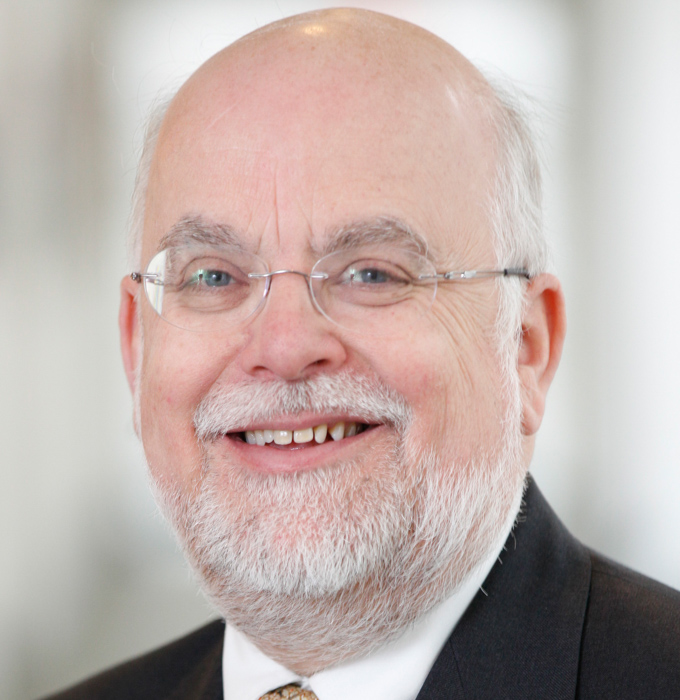
Rabbi Michael Shire, PhD
Academic Director, Master’s in Jewish Education
mshire@hebrewcollege.edu | 617.559.8617
Education
- Hon. Doctorate, Jewish Religious Education, Hebrew Union College
- Doctorate in Jewish Education, Hebrew Union College, Los Angeles
- Rabbinical Ordination, Leo Baeck College, London
- MA Jewish Studies, Leo Baeck College, London
- MA Jewish Education, Hebrew Union College, New York
- BA Hons. Hebrew Literature and Jewish History, University College London
Biography
Rabbi Dr. Michael Shire grew up in Birmingham England and completed his B.A. Hons in Hebrew Literature and Jewish History at University College, London. He continued his studies at Hebrew Union College both in New York and Los Angeles completing a M.A. and Ph.D. in Jewish Education. His research work, later to be published, proposed a curriculum orientation for spiritual enhancement in Jewish educational settings. He concurrently served as director of education at Temple Beth Hillel, a large Reform synagogue in North Hollywood, California. On returning to Great Britain in 1988, he took up the post as the national director of the Centre of Jewish Education developing the infrastructure, day schools and professional and academic learning of Jewish education in the UK. Following further study, he was ordained as rabbi at Leo Baeck College in 1996. In 2001, he merged the Centre of Jewish Education with the rabbinic training school, Leo Baeck College, and became its vice-principal for an additional eleven years. He became the professor and dean of the Shoolman Graduate School of Jewish Education in 2011 and subsequently was appointed as chief academic officer of Hebrew College from 2015-2020. He has been widely published in the field of Jewish education and spiritual education. In addition, he has published four books of creative liturgy with medieval illuminations in association with the British and Bodleian Libraries. He is founder of the Torah Godly Play pedagogic methodology and serves as trustee of the Pursuit of History, the Association of Institutions of Graduate Jewish Education.
Selected Publications and Presentations
- Judaism and Childhood, The Sage Encyclopedia of Children and Childhood Studies (Sage Publishing, 2020)
- Mazal Tov: The Rituals and Customs of a Jewish Wedding, Frances Lincoln (UK) and Stuart, Tabori and Chang (USA), 2003.
- The Illuminated Haggadah, Frances Lincoln (UK) & Stuart, Tabori and Chang (USA), 1998 (Co-productions in Germany, Holland, France, Russia and Israel).
- “Responding to the Questions of Uncertainty Online,” Wabash Center website, May 12, 2020
- “Torah Godly Play: An Innovative Approach to Religious Education for Shlemut” in “Gleanings: A dialogue on Jewish Education” Volume 6:2 2019
- Leo Baeck and Oppeln, Poland in Manna Spring 2011
- Rabbinic Training and the Interfaith Imperative in Open Theology No. 11 December 2011
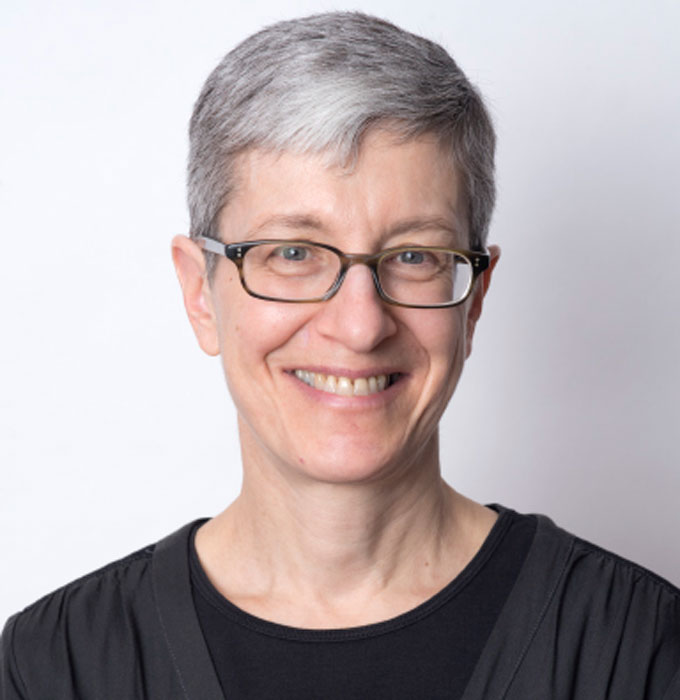
Dr. Devora Steinmetz
Faculty, Rabbinical School
Education
Ph.D. in Comparative Literature, Columbia University
M.A. in English Literature, Fordham University
B.A. in Biology, Barnard College
Biography
Devora has taught at Drisha, Yeshivat Hadar, the Jewish Theological Seminary, and Havruta: a Beit Midrash at Hebrew University. She serves on the faculty of the Mandel Institute for Nonprofit Leadership and has recently been involved in establishing Drisha’s new yeshiva in Israel. Dr. Steinmetz is the founder of Beit Rabban, a Jewish day school profiled in Daniel Pekarsky’s Vision at Work: The Theory and Practice of Beit Rabban.
She is the author of scholarly articles on Talmud, Midrash, and Bible and of three books, From Father to Son: Kinship, Conflict, and Continuity in Genesis; Punishment and Freedom: The Rabbinic Construction of Criminal Law; and Why Rain Comes From Above: Explorations in Religious Imagination.
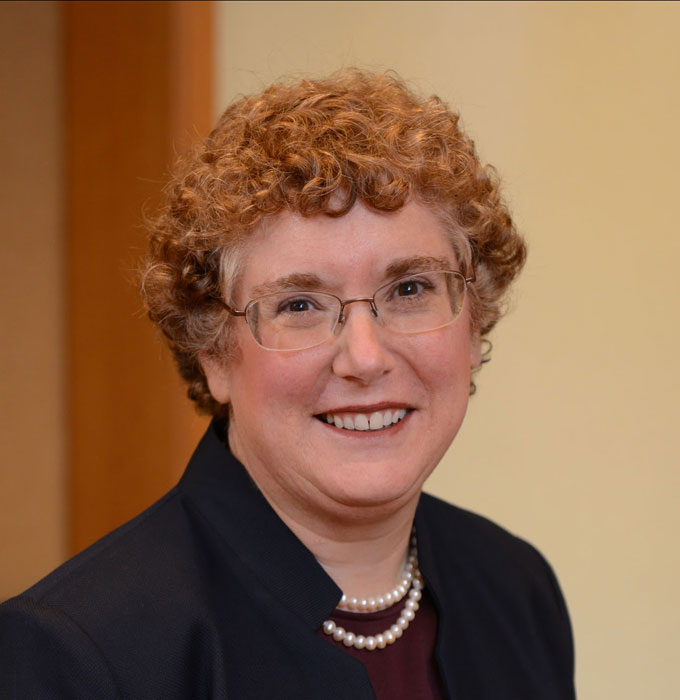
Dr. Susie Tanchel
Vice President
stanchel@hebrewcollege.edu
Education
Ph.D., Brandeis University
B.A., Brandeis University
Biography
Dr. Susie Tanchel is Vice-President of Hebrew College in Newton, MA. Since joining Hebrew College in 2020, Susie established MaTaRoT – Hebrew College’s Center for Jewish Professional Learning and Leadership and designed the new Master of Jewish Education Program. Prior to this, she served as the head of school at JCDS, Boston’s Jewish Community Day School for nine years and before that as the Associate Head of School at Gann Academy – The New Jewish High School of Greater Boston for 7 years and had taught Tanakh there for 14 years. Susie earned her doctorate from Brandeis University’s Near Eastern and Judaic Studies Department focusing on the development of ancient Israelite religious thought and the teaching of biblical texts in pluralistic Jewish high schools.
Susie has been an instructor in a number of pre-service education program including the Day School Leadership Through Teaching program at the Mandel Center for Studies in Jewish Education and the Masters of Teaching Program in Secondary Education at Brandeis University. She was on the writing team of the JTS and the Avi Chai Foundation’s Standards and Benchmark project for the teaching of Tanakh. She has also taught in a variety of adult education settings including CJP’s Genesis Program and for the Day School Leadership Training Institute (DSLTI). Currently, Susie teaches adult education classes at Hebrew College and in the Wexner Foundation’s Heritage Program and coaches educators in the Mandel Foundation’s Educational Leadership Fellowship and Jewish Day School professional and lay leaders across North America. Over the course of Susie’s career, her teaching, scholarship, and leadership have been recognized by a variety of fellowships and award, including receiving the 2017 Hachmat Lev Award from Keshet and the 2018 Covenant Award for Jewish Educators.
Selected Publications and Presentations
- “A Reflection on Teshuvah” (video) from the Hebrew College Elul Together Project (5781)
Adjunct Faculty
Cantor Vera Broekhuysen `16 Adjunct Faculty, Cantorial Program
Rachel Figurasmith Adjunct Faculty, Jewish Education
Joshua R. Jacobson Senior Advisor and Adjunct Faculty, Cantorial Program
Cantor Becky Wexler Khitrik `14 Adjunct Faculty, Cantorial Program
Cantor Jeff Klepper Adjunct Faculty, Cantorial Program
Jacob Meskin, PhD Adjunct Faculty
Rabbi Margot Meitner, LICSW, MSW Adjunct Faculty, Rabbinical School
Barbara Merson, PhD Adjunct Faculty, Jewish Education
Rabbi Carl Perkins Adjunct Faculty, Rabbinical School
Judith S. Pinnolis Adjunct Faculty, Cantorial Program
Cantor Ken Richmond Adjunct Faculty, Cantorial Program
Susie Rodenstein Adjunct Faculty, Jewish Education
David Stolow Adjunct Faculty, Rabbinical School
Cantor Louise Treitman Senior Advisor, Cantorial Program
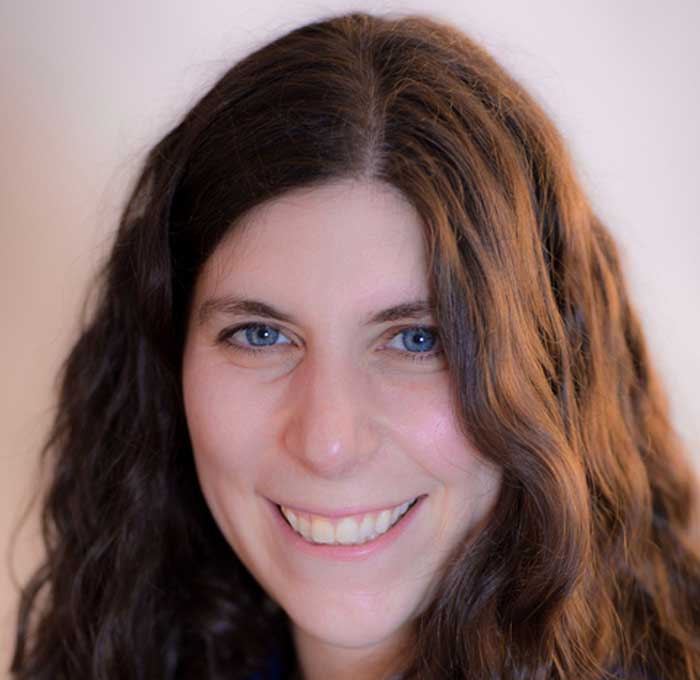
Cantor Vera Broekhuysen `16
Vera Broekhuysen is the cantor of Temple Emanu-El of Haverhill, MA. Vera was ordained by Hebrew College in June of 2016, when she also earned her Master’s Degree in Jewish Education. Vera sings as a soprano with the Zamir Chorale of Boston. She also performs in the band of Temple Emanu-El of Providence, RI, on vocals and drum, for their Shabbat Chai musical Kabbalat Shabbat services.
Vera has served trans-denominationally as cantorial soloist, professional leyner (Torah reader), and ba’alat t’fillah (prayer leader) at communities in Massachusetts and Vermont, including Boston Synagogue, the Jewish Community of Amherst, MA, Temple Hillel B’nai Torah in West Roxbury, MA, and Israel Congregation of Manchester, VT. Vera also tutors b’nei mitzvah students and adult learners privately.Vera is a Justice of the Peace in Massachusetts, and has officiated at weddings, b’nei mitzvah, baby namings, and other lifecycle events.
Vera lives in North Andover, Massachusetts, with her husband and two sons.
(Not teaching during 2020-2021 academic year)
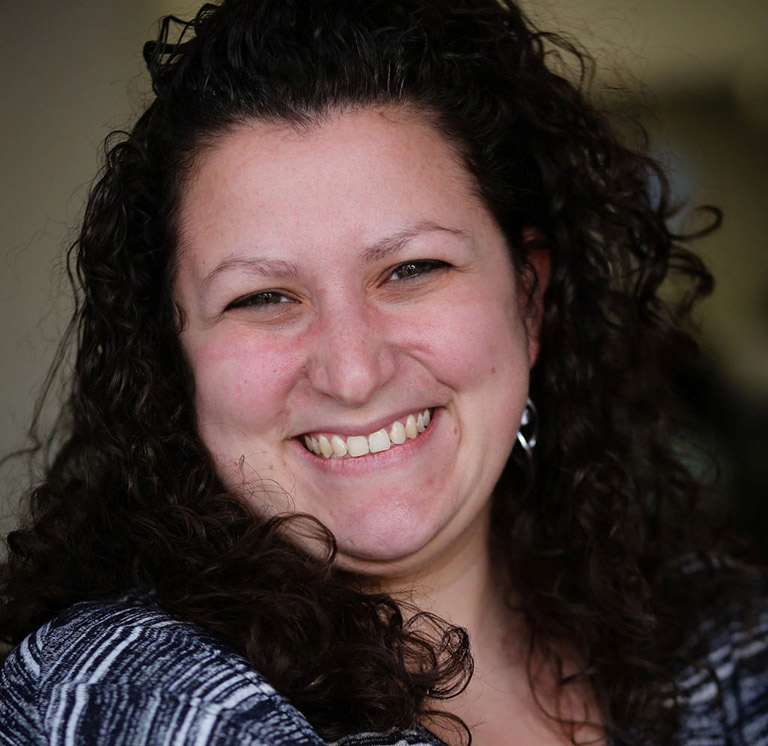
Rachel Figurasmith
Rachel Figurasmith teaches courses that explore the intersection of neurodiversity and Jewish life & education. She is deeply interested in developing Jewish learning environments that actively invite people of all abilities to participate. Rachel resides in New York City, where she currently serves as the Executive Director of Repair the World NYC.
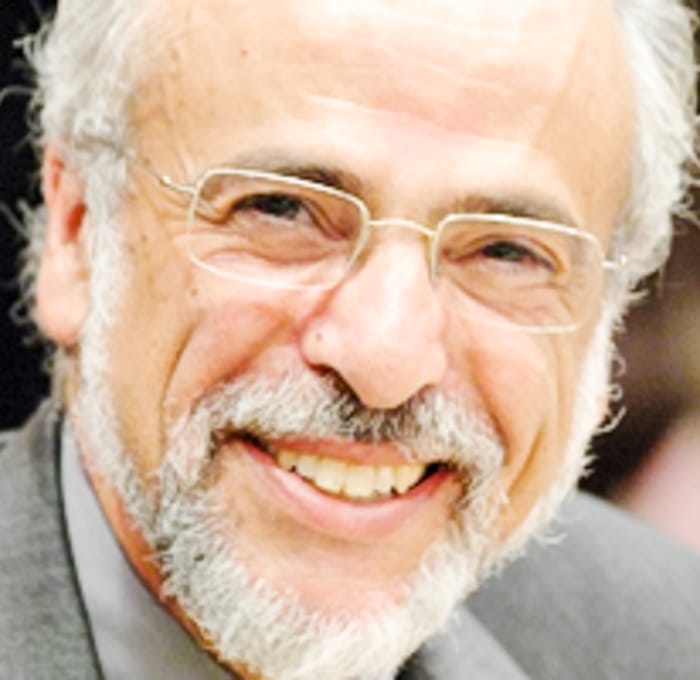
Joshua R. Jacobson
Senior Adviser, School of Jewish Music
D.M.A., University of Cincinnati
Joshua Jacobson served for 45 years as professor of music and director of choral activities at Northeastern University, including nine years as chair of the music department and six years as the Bernard Stotsky Professor of Jewish Cultural Studies. He is also founder and director of the Zamir Chorale of Boston, a world-renowned ensemble specializing in Hebrew music. Jacobson has written numerous articles and books, including “Chanting the Hebrew Bible: The Art of Cantillation” (Jewish Publication Society, 2002), which was a finalist for a National Jewish Book Award.
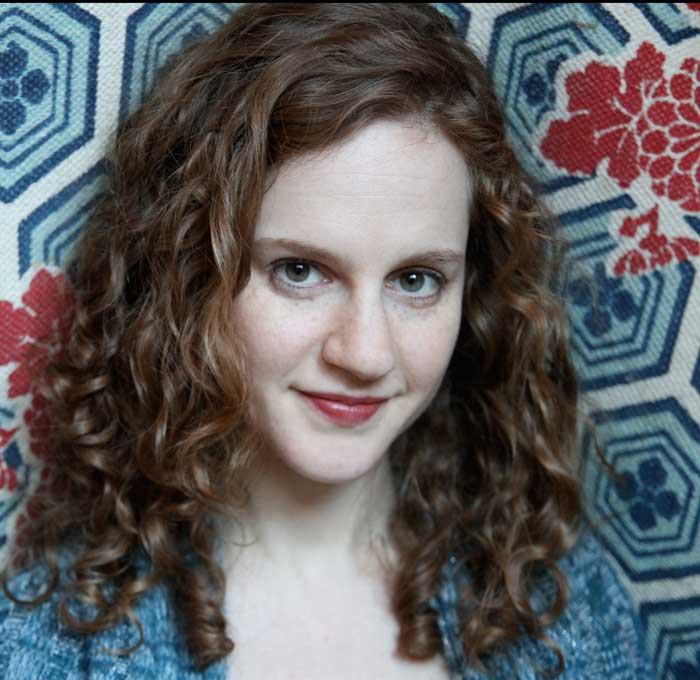
Cantor Becky Wexler Khitrik `14
Cantor Becky Wexler Khitrik `14
School of Jewish Music
Cantorial Ordination, Hebrew College
Cantor Becky Khitrik received her ordination from Hebrew College’s School of Jewish Music in 2014. Originally from Washington, DC, she holds a bachelor of arts degree in music and religious studies from Macalester College (St. Paul, MN), a certificate of study from the Zoltán Kodály Institute (Kesckemét, Hungary), and a master’s of arts degree in religion from the Yale Institute of Sacred Music (New Haven, CT). Cantor Khitrik is the cantor at Temple Sinai in Sharon, MA. Cantor Khitrik also enjoys an active performance career as a klezmer clarinetist. She has performed internationally and has received acclaim for her technical mastery, warm tone, and unique use of vibrato. She has developed several models for Jewish services based around the use of traditional nusach(prescribed melodies and modes for Jewish servies), and klezmer music.
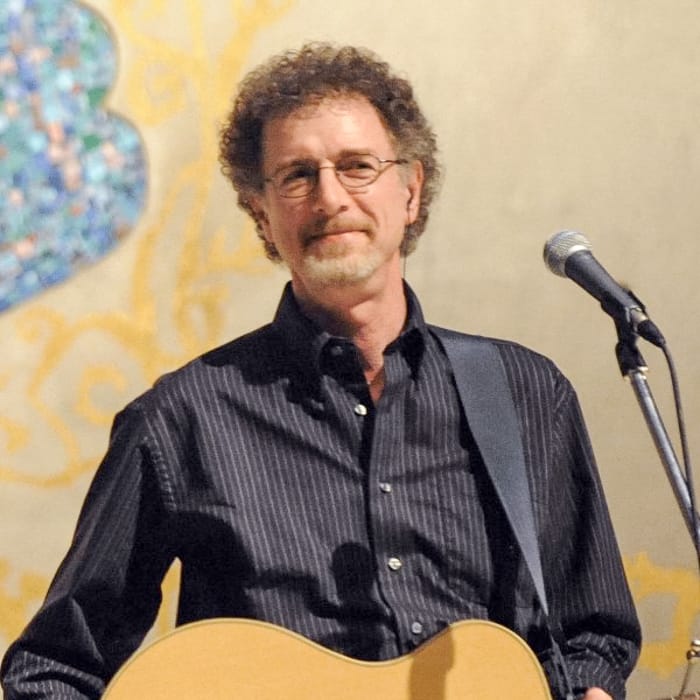
Cantor Jeff Klepper
Cantorial Ordination, Hebrew Union College-Jewish Institute of Religion
Jeff Klepper is one of the world’s leading composers of contemporary synagogue music. Several of his compositions, including Modeh Ani and Lo Alecha (both written with Klepper’s former music partner, Rabbi Dan Freelander), have become synagogue standards. Their setting of Shalom Rav, composed in 1974, is the defining Jewish melody of a new style of worship, bridging varied traditions and connecting multiple generations. Klepper, who served from 2003 through 2019 as cantor of Temple Sinai in Sharon, Mass., and is now cantor emeritus, holds an honorary Doctor of Music from his alma mater, Hebrew Union College.
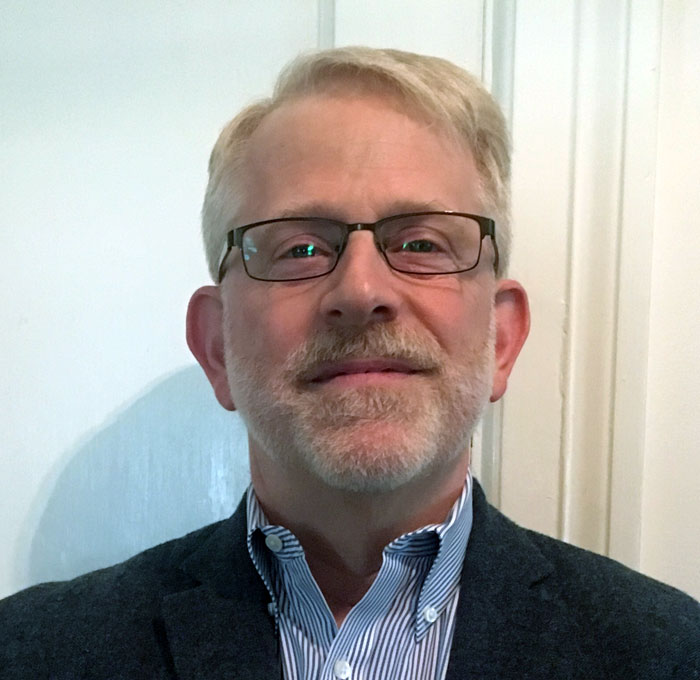
Jacob Meskin, PhD
Dr. Jacob Meskin is currently Academic Advisor and Senior Lecturer in the Me’ah Program at Hebrew College. He teaches in, and has taught for the Me’ah and Me’ah Select programs, the Tzion program, and for various synagogue and professional groups in the Boston area. In addition to having served for many years as teacher trainer for the Me’ah Program, he is co-author of the curriculum for Parenting Through A Jewish Lens, and works as a consultant on adult Jewish education and teacher training in the Boston area. Meskin was the inaugural holder of the Ruderman Chair in Jewish Studies at Northeastern University, and has taught at Princeton University, Rutgers University, the Bernard Revel Graduate School of Yeshiva University, Williams College, and Lehigh University. His articles have appeared in Modern Judaism, The Journal of Religion, Soundings, Levinas Studies, Judaism, Cross Currents, Educational Philosophy and Theory, and in several edited volumes. Despite being a transplant from New York City, Meskin has become an avid Boston sports fan. His hobbies include chess (which he thinks he’s good at), Go (which he wishes he were good at), nineteenth century English novels, old movies, and Indian vegetarian food. He lives with his wife and daughter in Brookline.
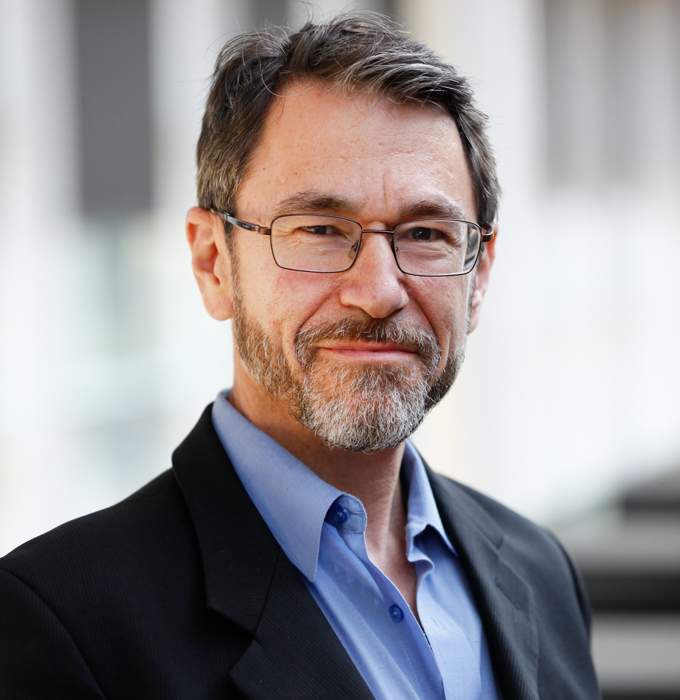
Cantor Dr. Brian Mayer Cantor Dr. Brian Mayer
Brian J. Mayer, a recognized scholar of hazzanut (cantorial music), served as Dean of the School of Jewish Music from 2009 through 2019. Prior to his appointment at Hebrew College, Mayer taught for 14 years at the Jewish Theological Seminary in New York as an assistant professor of hazzanut. Since 1989, he has also served as cantor of Temple Emanu-El in Providence, R.I. Mayer was featured in the ABC-TV documentary “To God’s Ear,” which was nominated for an Emmy Award in 2002. In 2008, he was the artistic director of “Shining Through Broken Glass: Kristallnacht Concert,” a highly acclaimed multimedia production featuring Leonard Nimoy. In 2003, he produced the CD Kolot Emanu-El.
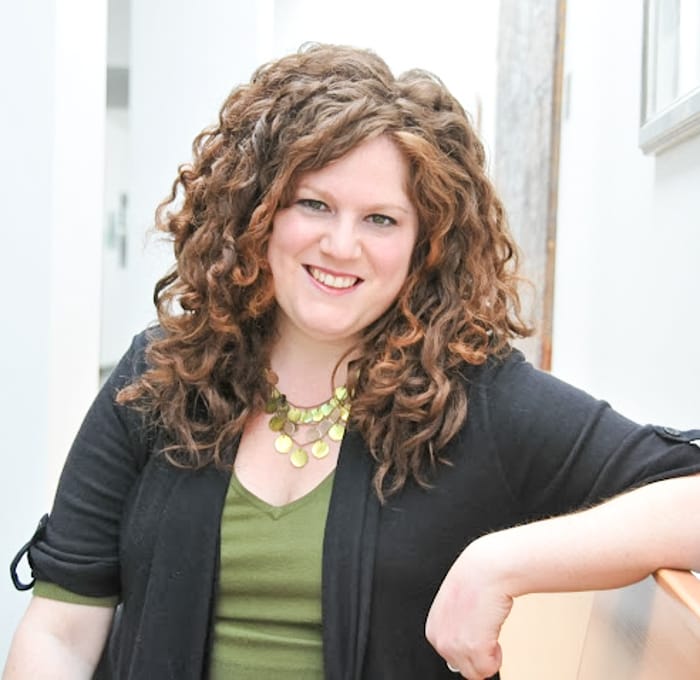
Rabbi Margot Meitner, LICSW, MSW
Rabbinic Ordination, Hebrew College
Masters in Clinical Social Work, Smith College School for Social Work
(Teaching fall 2019)
Margot Meitner is a Boston-based community rabbi and psychotherapist. She holds a B.A. in Women’s and Gender Studies and History from Yale University, an M.S.W. from Smith College School for Social Work, and rabbinical ordination and a Masters in Jewish Studies from Hebrew College. Margot is committed to accompanying people on their journeys toward emotional and spiritual health. She has a private psychotherapy and pastoral counseling practice at The Meeting Point and approaches her work with the understanding that individual healing is inextricably linked with collective healing and social change. She has served in a rabbinic capacity at Harvard Hillel, Congregation Beit Simchat Torah, the world’s largest LGBTQ synagogue in NYC, and Congregation Agudas Achim, a Reconstructionist synagogue in Attleboro, Mass.
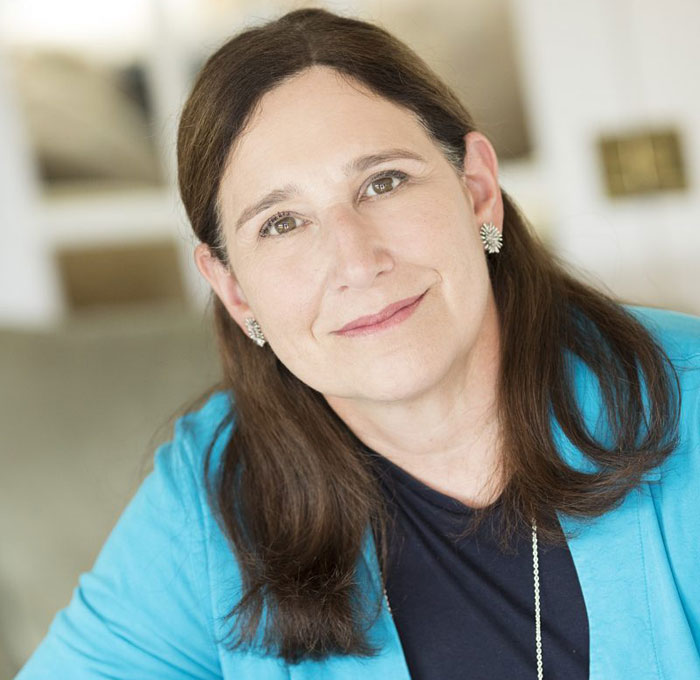
Barbara Merson, PhD
Ph.D. Lesley University & Hebrew College
BA: Brandeis University
MA: Colombia Univeristy
MA: SUNY Stony Brook
MA: Hebrew Union College
Barbara Merson is the executive director the Maine Jewish Film Festival. With extensive background in non-profit leadership, Barbara most recently served as the Executive Director of Temple Shaaray Tefila in Westchester, New York. Barbara’s experience also includes senior leadership positions at the Stamford Jewish Community Center, the ISEF Foundation, and the Slifka Foundation. An avid kayaker and hiker, Barbara lives in North Yarmouth with her glass artist husband Marty Kremer.
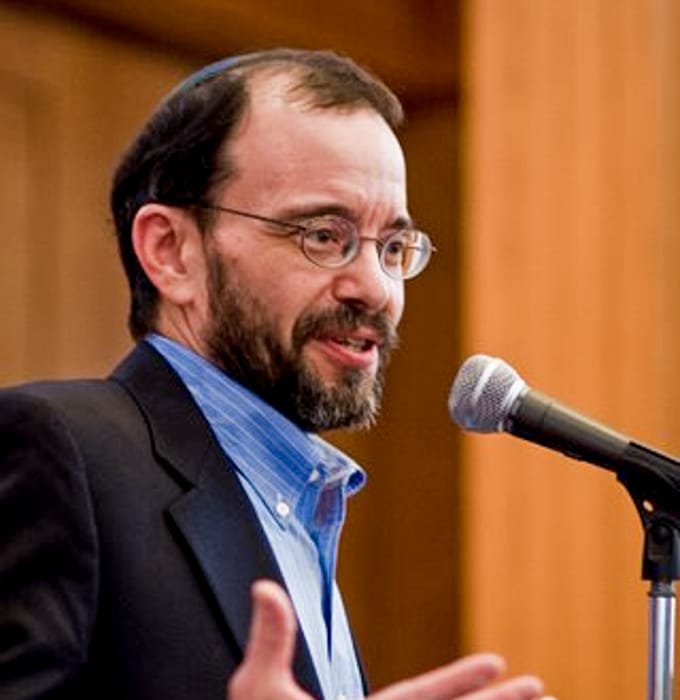
Rabbi Carl Perkins
Rabbinic Ordination, Jewish Theological Seminary
J.D. Harvard Law School
Carl Perkins has been the spiritual leader of Temple Aliyah in Needham, MA, since 1991. Educated at Haverford College, Harvard Law School and the Jewish Theological Seminary of America, Carl has taught and lectured widely in the Boston area, including at Hebrew College and Boston College Law School. He is the author of the revised edition of Embracing Judaism and numerous short essays on the Jewish Values Online website. (On leave for the 2019-2020 academic year only.)
(Not teaching during 2020-2021 academic year)
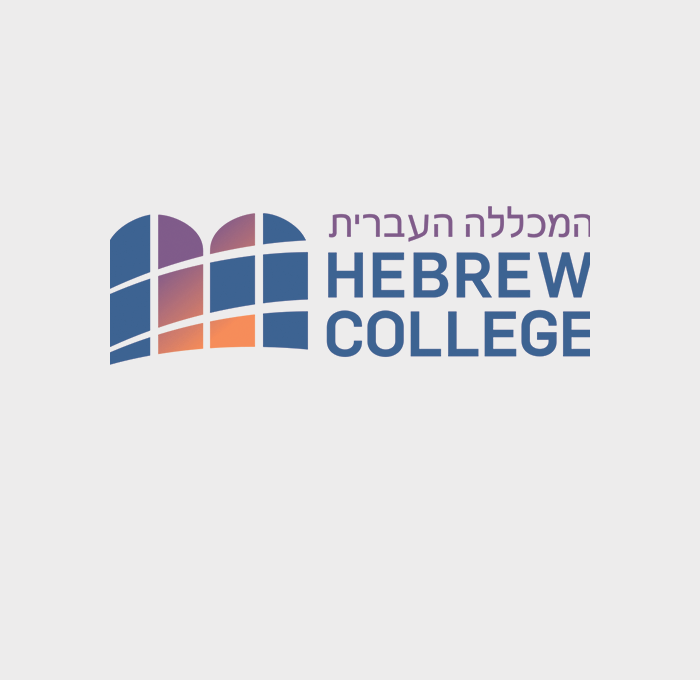
Judith S. Pinnolis
M.M., College-Conservatory of Music, University of Cincinnati
M.S., Simmons College
Judith S. Pinnolis has taught at the Debbie Friedman School of Sacred Music at Hebrew Union College-Jewish Institute of Religion. She is creator and editor of The Jewish Music WebCenter, a go-to resource in Jewish music. Currently she works as Collection Assessment Librarian at Berklee College of Music/Boston Conservatory and previously was a Librarian at Brandeis University for over 20 years. She has been active as former Chair of the Chapters Council of the Association of College and Research Libraries; President of the ACRL New England chapter; and Chair of the Jewish Music Roundtable of the Music Library Association.
(Not teaching during 2020-2021 academic year)
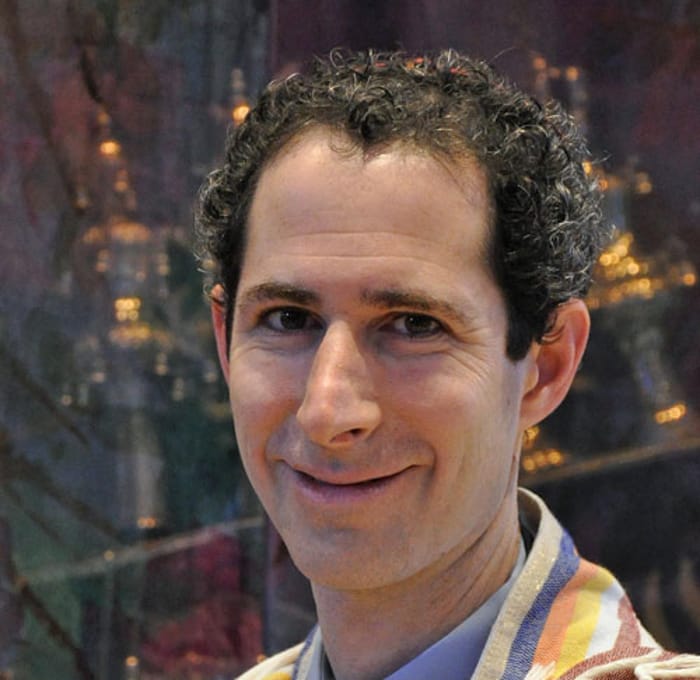
Cantor Ken Richmond
Cantorial Investiture, Jewish Theological Seminary
Cantor Ken Richmond has served since 2006 as cantor and family educator of Temple Israel of Natick, MA. He began his Jewish studies locally as a student at Solomon Schechter and Prozdor and as an apprentice to Cantor Charles Osborne. Richmond served as cantorial soloist for five years in Swampscott before graduating in 2004 from the H.L. Miller Cantorial School of the Jewish Theological Seminary. He plays several instruments, including violin, and his compositions include a Friday night Klezmer service.
(Not teaching during 2020-2021 academic year)
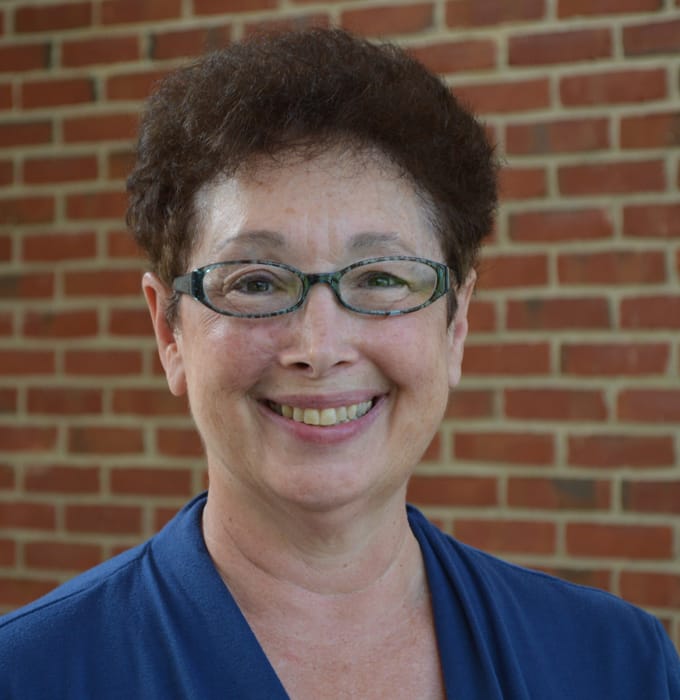
Susie Rodenstein
M.A., Harvard University
Susie Rodenstein is an experienced instructor in Jewish education and a certified school counselor. From 1992 to 1996, she was a Jerusalem Fellow. Upon her return to the United States, she joined the Mandel Teacher Educators Network, an organization that provides opportunities for text-based learning with colleagues from the United States, Canada and Israel.
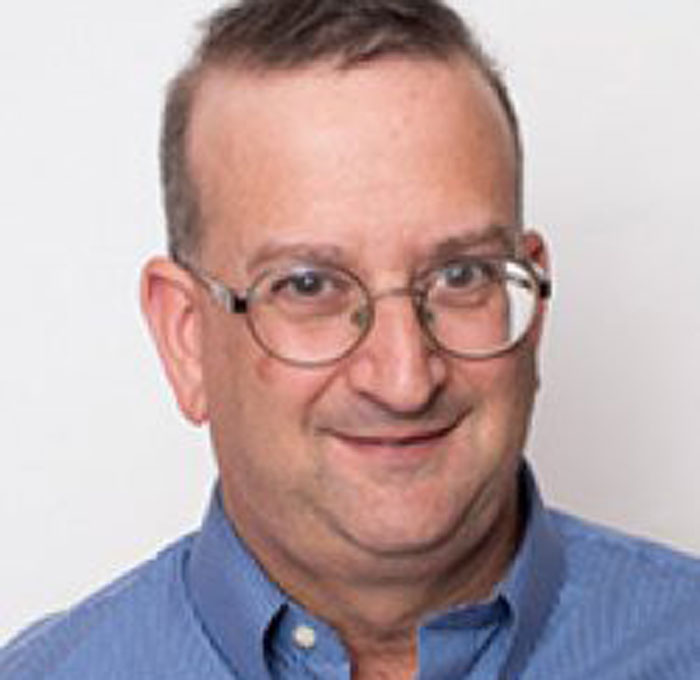
David Stolow
David Stolow is the Co-Faculty Director of the Social Impact MBA Program at Boston University Questrom School of Business. He teaches graduate and undergraduate courses in Nonprofit Management and Social Enterprise and advises the 150+ MBA students who focus their graduate studies on issues of social impact. Professor Stolow previously served 10 years as Director of Strategic Development at Citizen Schools, a national nonprofit network of extended-day and after-school programs. Previously, Professor Stolow worked as the Chief Financial Officer for Boston Community Capital and for City Year. He has served in on the boards of several organizations and has conducted numerous workshops on financial oversight for board members. Professor Stolow graduated summa cum laude from Yale University and holds a Master’s Degree in Public and Private Management from the Yale School of Management.
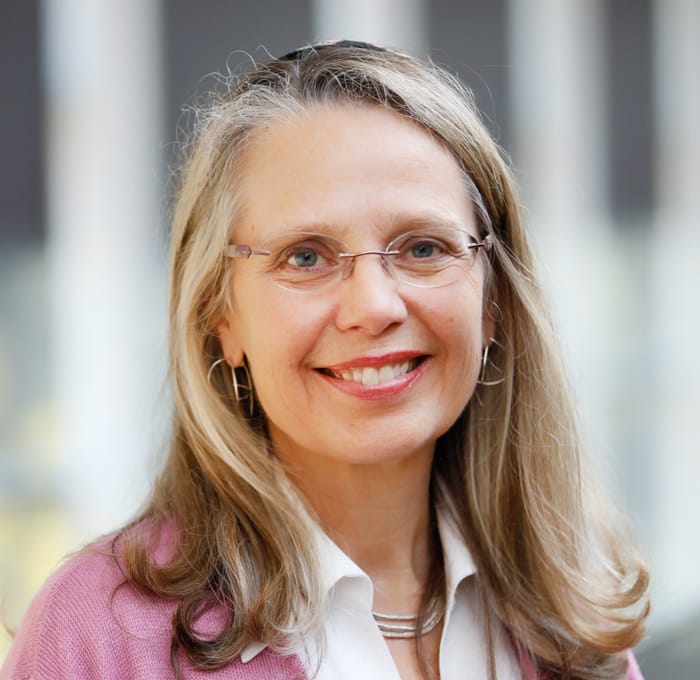
Cantor Louise Treitman
Cantorial Ordination, Hebrew Union College—Jewish Institute of Religion
ltreitman@hebrewcollege.edu
Education
Cantorial Ordination, Hebrew Union College-Jewish Institute of Religion (HUC-JIR)
Master of Music, New England Conservatory of Music
Biography
Cantor Louise Treitman helped to create the Jewish Music Institute at Hebrew College in the 1980s, which subsequently became the School of Jewish Music (SJM). She has continued her connection with Hebrew College since then in various capacities—as the former associate dean of the School of Jewish Music, and currently as a part-time faculty member in the rabbinic and graduate Jewish education programs and as a teacher, advisor and cantorial coach in the cantorial program. Cantor Treitman served Temple Beth David in Westwood, MA for 20 years and is honored to be their Cantor Emerita. She has served as the High Holy Day cantor at Beth Hillel in Rome, Italy, as well as Shir Hadash Firenze in Florence, both members of the World Union for Progressive Judaism. With degrees from Wellesley College and the New England Conservatory of Music, she received her Certification as an Invested Cantor through HUC-JIR in New York. Cantor Treitman was the president of the Jewish Ministers Cantors Association of New England and the founding president of the New England Board of Cantors. In addition to singing with the Zamir Chorale of Boston, she is co-founder/director of the vocal octet ‘Il Concerto di Salamone Rossi Hebreo.’ Louise lives in Lexington with her husband, Rick, and dog, Gracie Slick. She has three grown daughters and four grandchildren—so far.
Selected Performances
- “The Liturgy and Melodies of the New Year” (video) from the Hebrew College Elul Together Project (5781)

